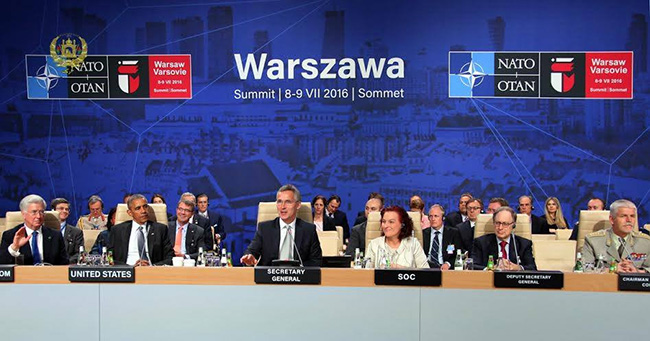With the escalating militancy and terrorist attacks, Afghan civilian and soldiers have sustained large casualties within the last two years despite having the upper hand in battlefields. Afghanistan is in the throes of insurgency as the Taliban declared “Omari Operation” and the self-proclaimed Islamic State of Iraq and the Levant (ISIL) gained foothold in the country. A spate of suicide bombings and targeted killings, mainly after the death of Mullah Akthar Mansour which hurt the Taliban factions emotionally, spill the blood of our nation indiscriminately.
More than 5,000 forces in Afghanistan were killed in action and over 14,000 were wounded in 2015, when the Taliban staged a series of attacks that upended US assumptions about the ability of Afghan forces to secure the country after more than fourteen years of war.
US Army General John Nicholson has said that Afghan forces are suffering rising levels of battlefield casualties this year after unprecedented numbers of police and soldiers were killed and wounded in 2015. “This year, we’re seeing more tactical success (by the Afghans) on the battlefield but more casualties as well,” Nicholson is cited as saying. He praised Afghan forces for being able to recruit new fighters and carry on, despite the casualty rates.
On July 6, US President Barack Obama discarded plans to reduce the number of US forces to 5,500 troops from 9,800 before he leaves office, citing precarious security in Afghanistan. Obama now plans to leave around 8,400 US troops.
The Taliban fighters violate humanitarian law frequently. Therefore, women and children are too the victims of terrorism. Scores of civilians lost their lives within the two past years. The systematic killings of religious minority group, the travelers’ abductions, which followed by death, and the civilians’ impromptu deaths in suicide bombings on streets made the national and international news. Simultaneously, the Taliban kill the Wounded In Action (WIA) and detainees in the worst possible way without considering the humanitarian law – this is not a matter of surprise, though, about the ideologues whose dogma is based on war and violence.
Since Afghanistan is embroiled in the war imposed on it by warring factions, the issue of combating terrorism has been debated widely in many international summits and conferences, including the Saturday’s NATO summit in Poland. Afghanistan is not able to tackle the issue on its own and needs the support of international community. On the surface – as the US waged “war on terror” against the Taliban and al-Qaeda in Afghanistan following the 9/11 terrorist attack – it seemed that terrorism was rooted out from Afghanistan with the downfall of the Taliban’s regime. However, the temporary pause in terrorist activities was the calm before the storm and they were reorganized to carry out attacks against Afghan and the US forces. Therefore, Afghan President Muhammad Ashraf Ghani said at NATO summit in Warsaw that peace was their highest national priority, but reaching peace required understanding the nature of the war imposed upon the Afghan nation. He believed that with NATO’s resolute support would redouble efforts to create a democratic constitutional order and an accountable and effective state that could bring peace in Afghanistan and secure its future from the menace of terrorism and thanked the NATO countries for “fighting shoulder to shoulder” with Afghan forces.
NATO will sustain its Resolute Support (RS) Mission beyond 2016 in Afghanistan and pledged to continue funding Afghan National Security forces through 2020. In a joint declaration at the two-day Warsaw summit, the alliance members said Afghanistan still faced serious challenges and further efforts were needed to fully safeguard and consolidate joint achievements.
NATO Secretary General Jens Stoltenberg confirmed that Afghanistan still encountered serious instability and violence. “So our continued political, military and financial engagement is of great importance,” he said. He also praised Germany, Italy and Turkey and all other allies and partners that contributed to the mission.
Needless to say, terrorism has changed into a global issue and blackmails the entire world, including Afghanistan. It should be noted that insecurity in a country will imperil the regional peace and prosperity. Take the example of Iraq as the emergence of the ISIL group put the security of its neighbors, mainly Syria and Turkey, under threat. So, terrorists will cross the borders to pursue their sinister targets. It is worth saying that a country which is fallen in this quagmire cannot tackle the issue alone, especially when super power countries face deadlock.
All debates should not be centralized over terrorism alone but there are also numerous factors which contribute to this issue. One of the largely known factors and mainstay of the Taliban fighters in Afghanistan is narcotic drug. According to the United Nations World Drug Report of 2016, Afghanistan is by a long way still the world’s largest opium producer, accounting for some 70 percent (3,300 tons) of global opium production. Reportedly, the total value of the illicit opiate economy in Afghanistan was $2.8 billion USD in 2014 — equivalent to 13 percent of the country’s gross domestic product (GDP). It is believed that the Taliban and Mafia groups get the lion’s share. So, they never plan to abandon war in the country.
Home » Opinion » The Outcome of Warsaw Summit!
The Outcome of Warsaw Summit!
| Hujjatullah Zia

